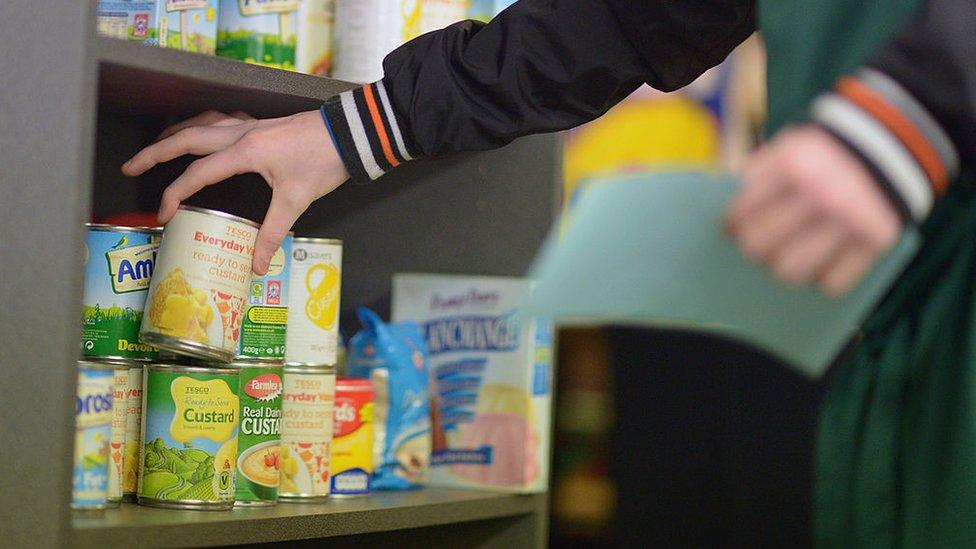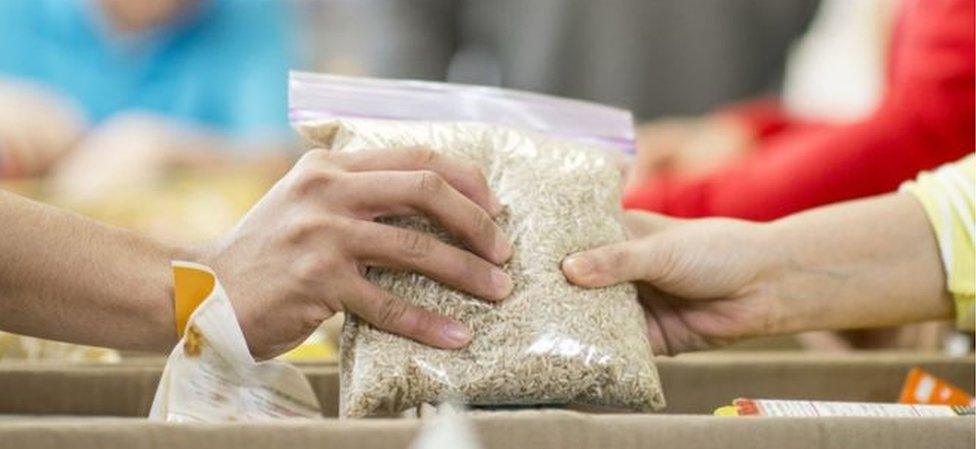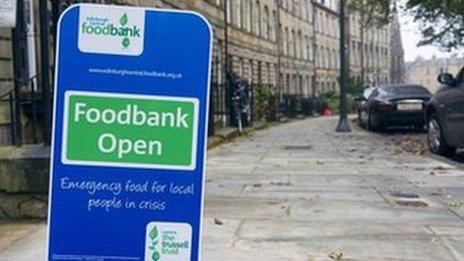Scottish charities hand out almost 600,000 food parcels in 18 months
- Published

Charities say more people are "reaching crisis point" when it comes to having enough food
Almost 600,000 emergency food parcels were handed out by food banks in Scotland over 18 months, according to new figures.
The Scottish charities which distributed the packages between April 2018 and September 2019 said more people were "reaching crisis point".
They said the number of food parcels handed out during that period was 22% higher than the previous 18 months.
The UK government said the reasons for people using food banks were complex.
A spokesman added that it supports more than 2.7 million people in the UK with Universal Credit.
The new figures were collected by the independent A Menu for Change group, a partnership between Oxfam Scotland, Nourish Scotland, the Poverty Alliance and the Child Poverty Action Group in Scotland and the Independent Food Aid Network.
It found that:
More than 278,000 parcels were handed out by 91 of the the country's 101 independent food banks between April 2018 and September 2019
A further 318,214 parcels went out through the Trussell Trust's 135 venues
The organisations warned the figures represent the "tip of the iceberg" for those struggling to buy food or feed their family.
"A weakened social security system, low pay and insecure work are tightening the grip of poverty and forcing people to crisis point," said project manager Margaret MacLachlan.
"The long-term solution to food insecurity is not food banks, it is ensuring people have secure and reliable incomes."
She added: "Today's statistics are shocking, but experts also warn that data on food parcel distribution only provides a partial picture of the number of Scots struggling to put food on the table, with many choosing to skip meals rather than use a food bank.
"No-one in rich Scotland should run out of money to buy food and political leaders must act now to prevent more people being dragged into poverty."

A Menu for Change has now called on UK and Scottish ministers to do more to tackle poverty.
It has demanded a raft of UK government policy changes, including raising the minimum wage to match the real living wage and benefit increases in line with inflation.
The coalition of charities also urged Scottish ministers to use devolved powers to increase welfare spending.
Benefit cap
A Department of Work and Pensions spokesman said: "The reasons for people using food banks are complex.
"The UK government continues to spend around £95bn a year on working age benefits, with Universal Credit supporting more than 2.7 million people across the UK. It gives people financial help if they're unemployed, low-paid or unable to work.
"The benefit cap ensures fairness by asking families receiving benefits to face the same financial choices as families supporting themselves solely through work.
"Meanwhile, Scotland has significant welfare powers and can top-up existing benefits, pay discretionary payments and create entirely new benefits altogether."
The Scottish government said food bank use had been directly linked to UK government welfare cuts, benefits sanctions and Universal Credit.
They said to tackle this they have invested more than £1.4bn in support for low income households in 2018-19.
- Published25 April 2019
